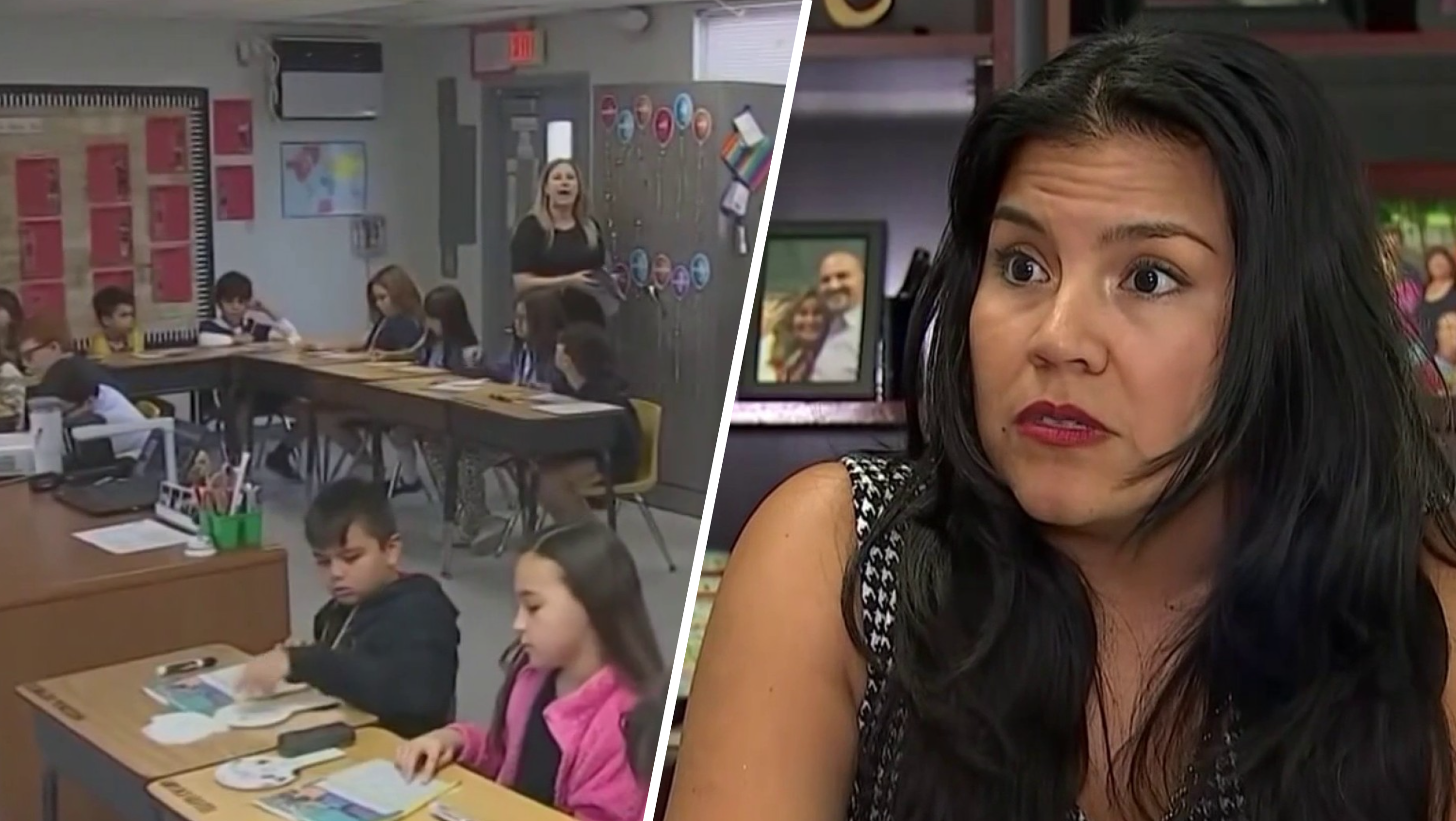Tai Vaz shares how to make miang kham the way she does everything else–thoroughly and in a flurry.
Gently she nudges the leaf in your hand into a perfectly closed funnel, before hurriedly scooping onions, dried coconut, peanuts, ginger, chili peppers and dried shrimp one by one into the cone and drizzling a sweet and spicy sauce over the bundle that then gets devoured in a single bite.
Awkward in your hands, in hers miang kham is a flawless, filling vessel.
This lesson comes after the service at Wat Buddharangsri, a Thai Buddhist temple located in Homestead, where on Aug. 13, 26 monks from all over the country and the state of Florida have gathered to pay respects to the abbot, or head monk.
The Hurricane season is on. Our meteorologists are ready. Sign up for the NBC 6 Weather newsletter to get the latest forecast in your inbox.
“He’s frail,” Vaz, who does the translating (and stage managing, and clean up, and just about everything else at the temple), explains during lunch. "He just did dialysis this morning."
“Mom, just say he’s old,” her daughter, Addi, chides.
The abbot has spiritually led a grateful community of Buddhists from all over Asia and the world since before they bought the five acres of land in Miami-Dade County in 1986. Vaz, now 57, remembers delivering alms to his apartment door before school.
Local
But while the abbot may be the founding rock, it’s clear that the temple's beating heart is made up of families like Vaz’s, who want to share it with the wider community. And it's not hard to see why.
Wat Buddharangsri, besides providing a picturesque scene and ornate architecture to admire, is a peaceful place away from the trappings typical of Miami and the surrounding area.
For those who don't know about Buddhism, the temple is equipped with pamphlets titled, "Outline of the Buddha's Four Noble Truths," "Mindfulness of Breathing with Sixteen Bases," and "A Five Minute Introduction to Buddhism."
Though Buddhism is often referred to as a religion, many adherents describe it as a way of life or philosophy. In short, the tradition teaches a way to end suffering, break out of the cycle of rebirth and achieve enlightenment. The man who developed this "dharma," or main principles, in 543 BCE was Prince Siddhartha Gautama, known as the Buddha.
The temple hosts a Thai street food market every Sunday from 10:30 a.m. to 2 p.m., and free meditation classes from 3 to 5 p.m.
"It's free, taught by the monk. You can't get any better teacher than that," she says. "I would love for people to take advantage."
Five monks live with the abbot on the property, which they maintain and share with several friendly cats and shier chickens. Inside, red carpeted floors absorb the steps of bare feet and the smell of incense greets visitors. A 23-foot-tall, 5-ton statue of Buddha sits in the center, straight-backed and serene.
But it's during lunch that the generosity of the community is on full display.
It starts with a dragon fruit, pressed into my palm by Vaz, whose eyes are already surveying the leftovers of the feast.
“She loves to do this,” Addi says later, as the singular fruit becomes a Trader Joe’s bag full of food to take home.
Some of the dozens of dishes, including noodles, whole fish, longan berries, sesame balls, chicken curry, fried chicken, shrimp tempura, sticky rice, fried banana, nam sod and so much more, once spread across the entire length of three picnic tables are now packed up.
In between dishes, one of the monks starts giving a sermon. I copy others who stop eating and press my hands together. Vaz sneaks a Thai style beef jerky and then translates.
"He's saying our goal in life is to be happy. We need to know when is enough, when to accept and when to let go," she explains. "You are accountable for your own action."
'I'm very proud of her'
Outside, I question Addi about her mom's work; Vaz chairs the Miami-Dade County Asian American Advisory Board and is the vice president of the Thai American Association of South Florida.
"She knows everyone and everything," Addi says. "I think for everyone, representation is important. And she's doing like, a really good job at making sure Asian voices are seen and heard."
Then she expresses the sentiment of nearly every daughter who ever was.
"I'm very proud of her... I probably don't, like, give her her flowers as much as a daughter should," she says.
Vaz demures.
"I'm very happy that I'm able to contribute my part, it's what I do [during] just about every single event that's happening here," she says. "But I'm not the only one that you can see as busy as a bee. It's just everyone."
That cooperative spirit is on display during the day's service.
Women wave and nod to each other, bouncing from seat to seat, chatting warmly and moving on. It doesn’t feel totally necessary to speak Thai to feel the power of the meditations led by the monks, because smiling strangers chime in when it really matters.
Like the one woman who quickly taps my hand.
"Sathu," she says a few times, while pressing her palms together and to her head, motioning that the word is to be repeated "in your heart" after every invocation as she turns back to the monks. Like "amen," it is an affirmative response to the blessings provided.
And the goal is not conversion, as Buddhism's tenants can be applied across various religious traditions. Practitioners just want visitors to catch the lessons.
"That's what Buddhism is about," Vaz says. "Buddhism is about compassion. Buddhism is about giving. Buddhism is about understanding, Buddhism is about the Middle Path... Just like the monk earlier, when he was giving the sermon, he said happiness is with you, in your heart. So in your heart you must find a way to be happiness. Lord Buddha's teachings will be able to give you that pathway."
And when all is said and done, you may be drawn into a group photo, even if you’ve never been to a service before.
Vaz will be one of the people doing the pulling.
"I'm just going to quote the abbot. He says, 'This temple belongs to everyone.' So everyone is welcome," she says. "Come and visit."



